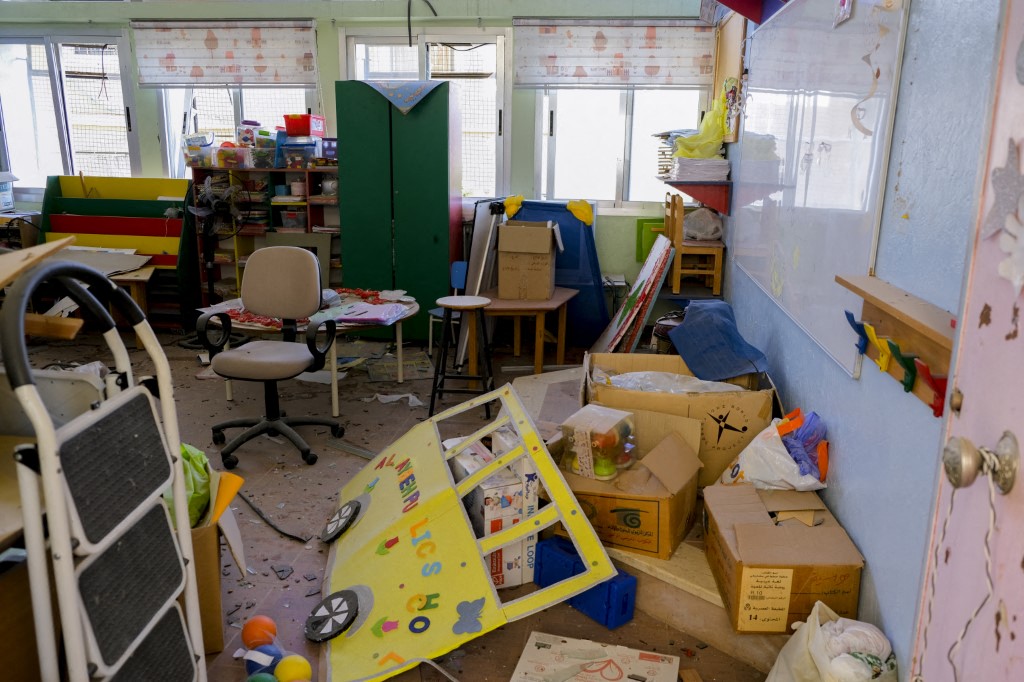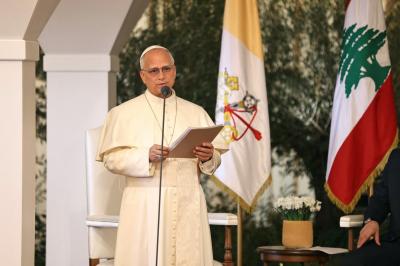Amid Lebanon’s all-encompassing collapse—political, economic, social, and educational—the Ministry of Education has announced that official high school exams will be held in July 2025. The decision comes with a unified curriculum, no elective subjects, minor lesson reductions, and the cancellation of catch-up exam scores. Marketed as a “scientific and neutral” choice, the move has sparked a wave of criticism and anxiety among students, parents, and educators, who see it as dangerously out of touch with the fractured reality on the ground.
For over half of Lebanon’s students, the academic year didn’t effectively begin until January—particularly in the war-affected southern border regions. There, students live under conditions of displacement, instability, and repeated disruptions to their education. In this crumbling landscape, the ministry’s decision appears to be a forced attempt to restore lost prestige—through a rigid, bureaucratic approach that ignores disparities and imposes a one-size-fits-all model on an unequal and splintered reality.
A Crisis on the Ground: Education Under Siege
The decision was made in the midst of a national emergency: a war raging in the south, destroyed schools, thousands of displaced students, and teachers crushed by psychological and financial burdens. These facts—essential to shaping any educational policy—were brushed aside in favor of technocratic narratives centered around digital “achievements” and abstract “surveys.”
This raises a fundamental question: Can educational decisions be made in isolation from the social and psychological context students are living through?
According to educational and psychological theories, the answer is no. Maslow’s hierarchy of needs makes it clear: learning cannot take place without safety and stability. A student living in a tent, who has lost a family member or a home, or is studying via unstable internet, cannot be held to the same standards as a student in a secure and functional environment.
From Action Research to Political Justification: Where the Minister Went Wrong
The Minister of Education, with an academic background in action research, used research tools not to understand and improve the situation, but to justify a predetermined decision. The surveys, prepared by the Center for Educational Research and Development (CERD), were not based on real field visits, but on shallow, non-representative samples that failed to reflect Lebanon’s diverse educational fabric.
This is the crux of the problem: real action research, as defined by pioneers like Kurt Lewin and Donald Schön, is participatory, immersive, and flexible. What took place was a top-down process: cherry-picked data analyzed behind closed doors, with no real engagement with students or teachers.
Instead of promoting fairness, the decision turned into a form of symbolic violence, as defined by Pierre Bourdieu, when strict standards are enforced in the name of justice while masking deep structural injustice and spatial and class disparities. Imposing unified exams on students in South Lebanon and the Bekaa as if they lived the same reality as students in Beirut or Mount Lebanon only entrenches inequality rather than addressing it.
Between Denial and Exclusion: Power Without Pedagogical Legitimacy
Philosophically, the decision represents a regression from the principle of educational justice as defined by John Rawls, who argued that fairness is not about formal equality but about compensating disadvantaged groups. Yet the ministry offered no flexibility in subjects, no significant adjustment in exam content, no psychological support, and not even an acknowledgment of the depth of learning loss.
From Albert Bandura’s perspective and his theory of social learning, a teacher burdened by stress and trauma cannot be an inspiring role model, thus weakening the educational bond between student and teacher, and turning schools into sites of anxiety rather than growth.
More dangerously, Paulo Freire’s concept of “false representation” comes into play. The minister claimed to have listened to southern students at the ministry! As if a student who lost their home or family could realistically attend a meeting in Beirut. The suffering was filtered through carefully selected voices that served to validate, rather than challenge, the official narrative.
Global Lessons Ignored
The ministry has also failed to learn from global precedents:
- Syria (2014): Insisting on traditional exams led to higher dropout rates and public distrust in the education system, according to Save the Children.
- Haiti (post-2010 earthquake): Rushing into official exams caused catastrophic failure rates, per UNESCO.
- France and the UK (during COVID-19): Both suspended centralized exams and adopted more flexible, just evaluation models.
If developed nations chose adaptability in the name of fairness, how can Lebanon, plunged deep in crisis, impose a rigid, bureaucratic model that reproduces the worst of institutional inflexibility?
What Comes Next: The Inevitable Fallout
If the decision remains in place, it is likely to produce three serious consequences:
- Higher failure rates, especially in war-affected regions, further weaken already fragile communities.
- Erosion of public trust in the official certification process, due to the lack of fairness and accurate representation.
- Widening gaps between public and private schools, and between students in different regions, are threatening the integrity of the educational system itself.
From Education as Nurture to Education as Institutional Oppression
This is not just an administrative failure—it’s a betrayal of the core philosophy of education. In times of crisis, education must be a process of care, not assessment; a path of support, not classification. Instead of serving as a tool for equal opportunity, the official exam has become a bureaucratic weapon hanging over the heads of students who have been left with nothing but rubble, thanks to war and economic collapse.
It is therefore the students’, teachers’, and parents’ right to reject this decision, not as a refusal of evaluation, but as a stand against injustice masquerading as fairness. When the state fails to protect the student, it loses the moral ground to judge them. There can be no neutrality in the face of oppression, no science without listening, and no reform atop the ruins.
Please post your comments on:
[email protected]
 Politics
Politics













